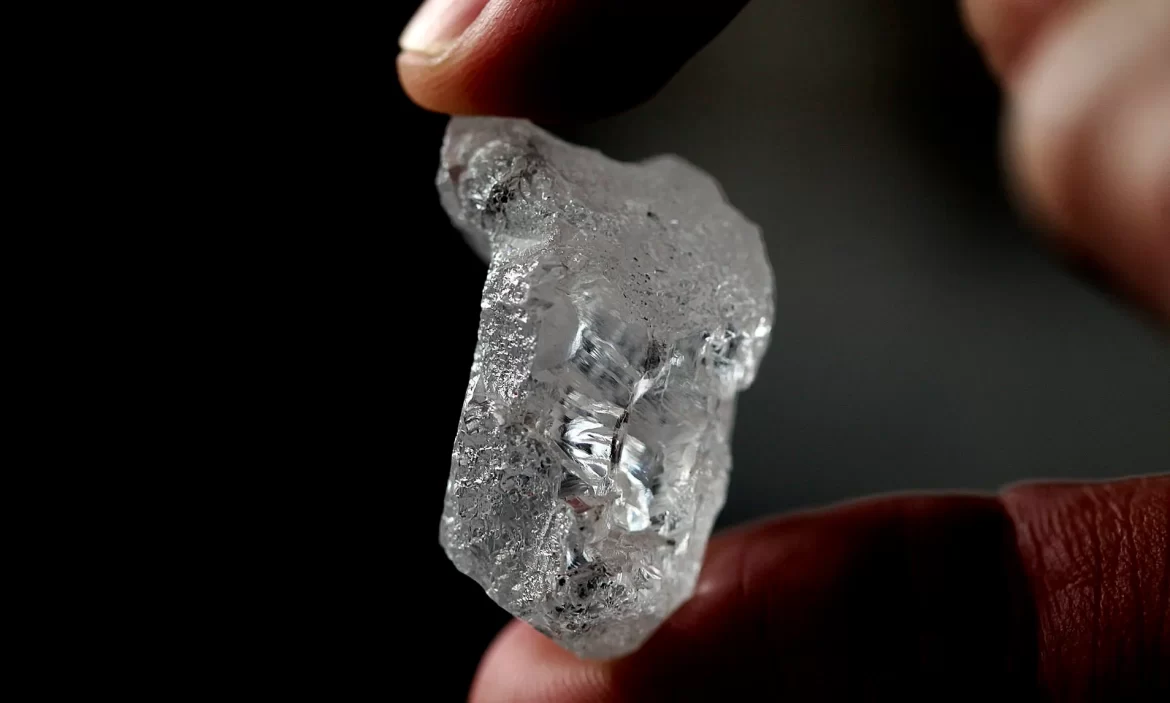After more than five years of negotiations, De Beers and the Botswana government have concluded discussions on a new rough diamond sales agreement.
However, the deal has yet to be signed. Botswana’s Minister of Minerals and Energy, Bogolo Kenewendo, expressed hope that this would happen later in February, a sentiment met with a nod from De Beers CEO Al Cook at a press briefing on February 3.
The only remaining step is the formal issuance of mining licenses, which Cook described as a “largely formulaic” process.
The new government, led by President Duma Boko’s Umbrella for Democratic Change (UDC) coalition, has emphasized that it secured the agreement within just 100 days.
This raises questions about why the previous administration, under the Botswana Democratic Party (BDP), took so much longer.
In response, the BDP, which lost the national election in October, issued a statement on February 5, asserting that the deal was the result of its own long-term strategic efforts rather than the new government’s efficiency.
The party claimed that all key commercial terms had been agreed upon before its departure, with only one major issue unresolved—a significant tax dispute with De Beers.
At the heart of the delay, according to the BDP, was De Beers’ alleged outstanding tax bill, with speculation over whether the new administration waived amounts ranging from BWP 4 billion ($290 million) to BWP 14 billion ($1.02 billion).
The Botswana Unified Revenue Service (BURS) had flagged a BWP 4 billion ($290 million) tax liability in 2021, linked to De Beers’ tax optimization strategies.
A January 2023 report claimed that Botswana’s presidential office ordered BURS to write off the bill after De Beers refused to sign the agreement.
However, it remains unclear whether the waiver was ever granted and why former President Mokgweetsi Masisi shifted his stance on the matter.
The BDP contends that if the new administration did waive the tax debt, it was a reckless decision, depriving Batswana of funds that could have been used for healthcare, education, infrastructure, and job creation.
A source in Botswana, speaking on condition of anonymity, suggested that Masisi had used the tax issue as leverage against De Beers and that the dispute was headed for a lengthy court battle—a scenario that could have delayed the deal even further. The source speculated that a settlement had been reached to expedite the agreement.
The new government has not publicly addressed any potential tax settlement and did not respond to requests for comment.
Meanwhile, De Beers reaffirmed its commitment to tax transparency but did not clarify whether the tax issue had been resolved.
The previous De Beers-Botswana contract was originally set to expire in 2020 but received multiple extensions.
Beyond tax disputes, other factors—including the Covid-19 pandemic and negotiations over the share of production allocated to Botswana’s state-owned diamond trader, Okavango Diamond Company (ODC)—also contributed to the delays.
While the deal is now on the verge of completion, questions remain about what concessions, if any, were made behind closed doors to secure the agreement in record time.
![]()




